Pakistan’s disillusionment with the Afghan Taliban was swift, rude, and hurtful.
Sept 20, 2020: Khawaja Asif celebrates the “victory of good over evil” in Doha, Qatar, after Taliban and US officials sign an agreement that would a year later result in a chaotic exit of US-led NATO forces from Afghanistan. “You may have powerful militaries, but God is on our side… God is great,” Asif writes on “X” with a photo of Taliban top negotiator Mullah Abdul Ghani Baradar with US Secretary of State Mike Pompeo in the Qatari capital.
August 16, 2021: Imran Khan euphorically announces that the Afghans have ‘broken the shackles of slavery’ as the Taliban triumphantly enter Kabul. The confidence is so inflated that Pakistan’s spy chief makes a dash to the Afghan capital less than a week after Kabul’s fall. “Everything will be okay,” he confidently tells an anxious foreign journalist at Kabul’s plush Serena hotel.
But the euphoria didn’t last long. The exultation evaporated quickly.
The Taliban’s bewildering victory rejuvenated the regional militant landscape. The TTP regrouped through a series of mergers, acquired modern weaponry, and reorganised its media and operational structures to unleash its full fury in an attempt to emulate its ideological twin. A steep rise in terrorist violence ensued in Pakistan, straining relations between the two neighbours.
Fast-forward to March 28, 2024: Khawaja Asif, now defence minister, calls the Taliban-ruled Afghanistan the “source of terrorism in Pakistan” as he regrets “lack of cooperation from Kabul” for tackling the terror threat. Asif’s outburst was prompted by a series of major attacks in Pakistan – mostly carried out by TTP and its allies.
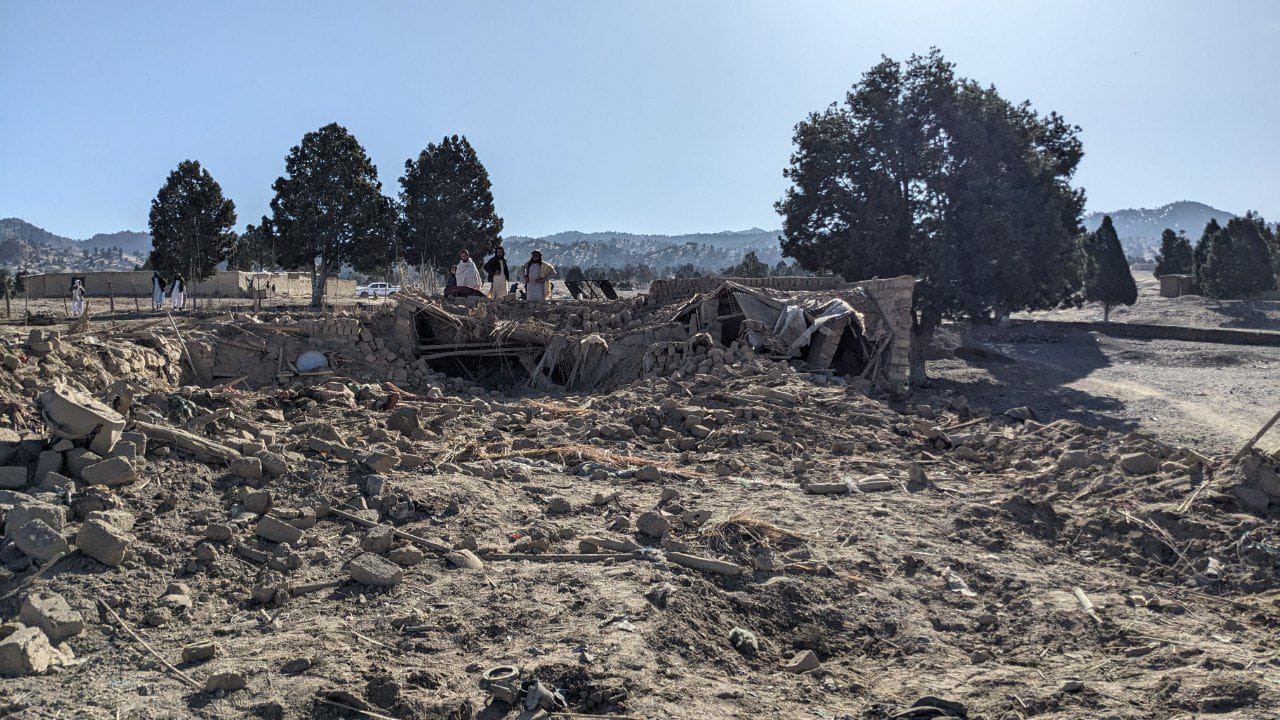
The air strike
Simmering tensions boiled over earlier this month when Pakistan launched precision strikes against TTP safe havens inside Afghanistan. The blitz was a reprisal to a brazen terrorist attack on an outpost of security forces in the Khadi village of Mir Ali tehsil, North Waziristan district. Seven servicemen, including two officers, were martyred in the extraordinarily large attack that involved six suicide bombers and an explosive-laden truck.
A terrorist group led by Hafiz Gul Bahadur claimed credit for the assault, saying that the attackers belonged to its affiliates Jaish Umari Istishahadi Force and Jaish Fursan Mohammad. The Taliban regime in Kabul reacted angrily to the air strikes condemning them as “reckless… violation of Afghanistan’s territory.”
The regime’s spokesman, Zabihullah Mujahid, in a formal reaction reminded Pakistan of the Taliban’s “long experience of freedom struggle against the superpowers of the world” before hurling a naked threat that “such incidents can have very bad consequences which will be out of Pakistan’s control.”
Afghan forces ‘retaliated’ by firing mortars at the Pakistani military in Kurram district which lies opposite to Paktika province of Afghanistan. Pakistan’s ambassador was also summoned to the Afghan foreign ministry where he was given a diplomatic demarche to deliver to Islamabad. “Military violations, including those in Khost, must be prevented as such acts deteriorate relations ... allowing antagonists to misuse the situation leading to undesired consequences,” Afghan Foreign Minister Amir Khan Muttaqi told the envoy.
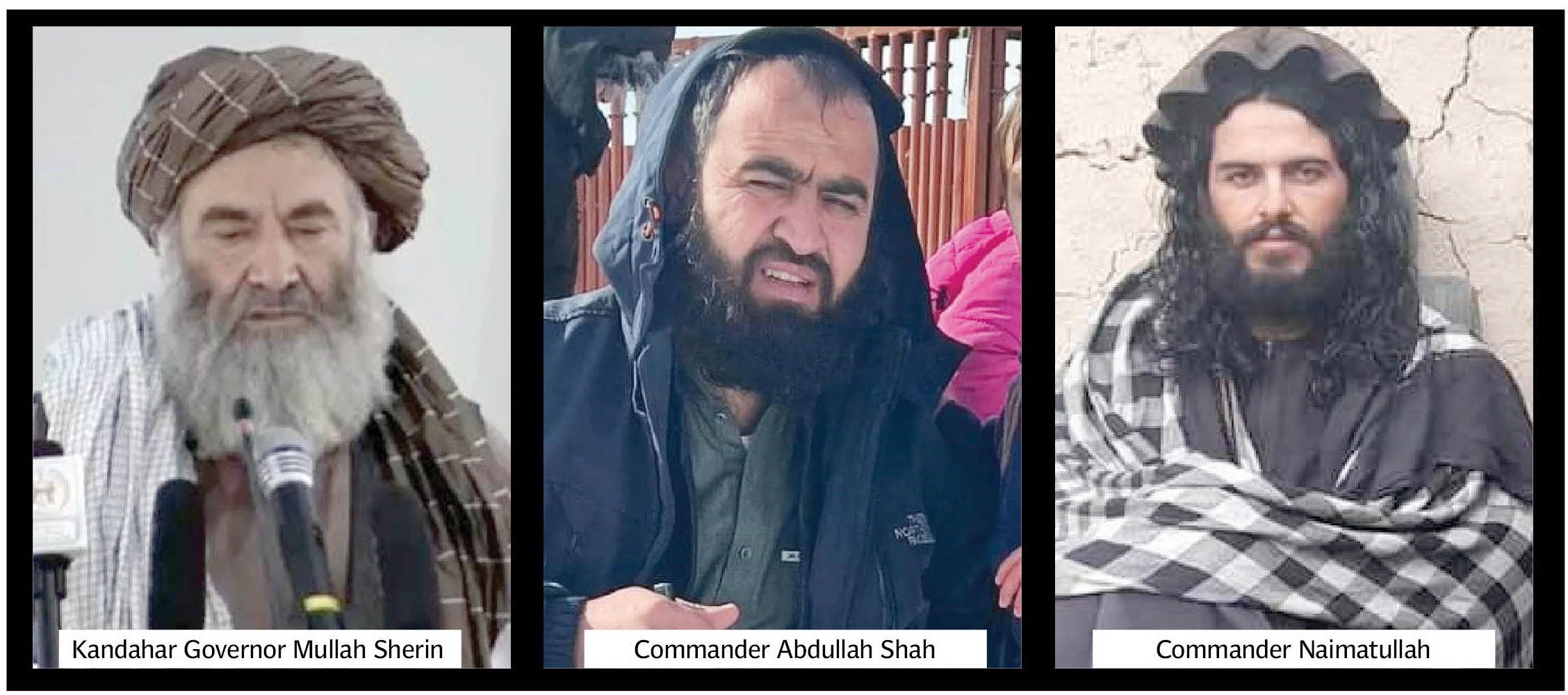
The target
The apparent trigger for the “intelligence-based anti-terrorist operations inside Afghanistan” was the deadly attack on the Pakistani military outpost in Mir Ali. And the ‘prime target’ was terrorists belonging to Hafiz Gul Bahadur group, which along with banned Tehreek-e-Taliban Pakistan (TTP) has been responsible for multiple attacks. The foreign ministry spokesperson wouldn’t reveal more. Sources say that the precision strike targeted the locations of Gul Bahadur group and TTP in the eastern Afghan provinces of Paktika and Khost.
According to sources, Abdullah Shah Kakarai, alias Tobagaar, was the main target whose compound was hit in the Barmal area of Paktika. The structure was decimated, but Shah escaped unhurt because he wasn’t present inside at the time of raid. Commander Hassan Gul, alias Toofan, and Commander Farman, alias Akram, were targeted in the Speira area of Khost. Another target, identified as Muaz Khan, alias Muazgai, had had a lucky escape in Paktika as the air strike against him was aborted at the last moment due to fears of collateral damage.
The elusive Shah
Abdullah Shah Kakarai, belongs to Shaktoi area of South Waziristan. Shah and his brother Ehsanullah, aka Chanre Ehsan, had sided with militant commanders Baitullah Mehsud and Maulvi Nek Muhammad when the Pakistani security forces launched an operation in South Waziristan in 2004. Following the signing of Sararogha Agreement in 2005, Baitullah Mehsud handed the control of Shaktoi to Shah. Four years later, Shah and his deputy, Maulvi Zar Jan were targeted in a US drone attack in Shaktoi. Shah survived with injuries, but his deputy wasn’t lucky enough. Shah, who is fond of exotic birds, always maintains a mini aviary at his house. Shah is wanted to Pakistan and has survived several attacks.
Shah was lucky to have survived the precision strike, but some of his comrades were not. Among the eight fatalities in the strikes, according to reports, was Naimatullah Khan, TTP’s senior military operational commander in Karachi, though the group hasn’t confirmed his death.
The deafening silence
While almost everyone in Afghanistan had something to say about the Pakistani air strikes, the TTP has been conspicuously silent. There could be more than one possible reason. First, by aligning its reaction with that of the Kabul regime’s the TTP would have come off as a protégé of the Taliban. And this is what the group might have wanted to avoid. Second, the TTP didn’t want to say anything that could belie the group’s claim that it “operates from within Pakistan’s borders” and doesn’t “need to use another country's land nor its support.” And this is in complete consonance with the Afghan Taliban’s assertion. Third, the targets of the Pakistani air strikes belonged to the Gul Bahadur group, which is not part of the TTP.
The Gul Bahadur group was the first to earn the moniker “Good Taliban” after it made a commitment in the Sararogha Agreement that its fighters would not carry out attacks inside Pakistan. It is true that the group never formally joined the TTP, but it is also true that at the operational level a strong symbiotic relationship exists between the Gul Bahadur group and the TTP as both operate from their sanctuaries in Afghanistan.
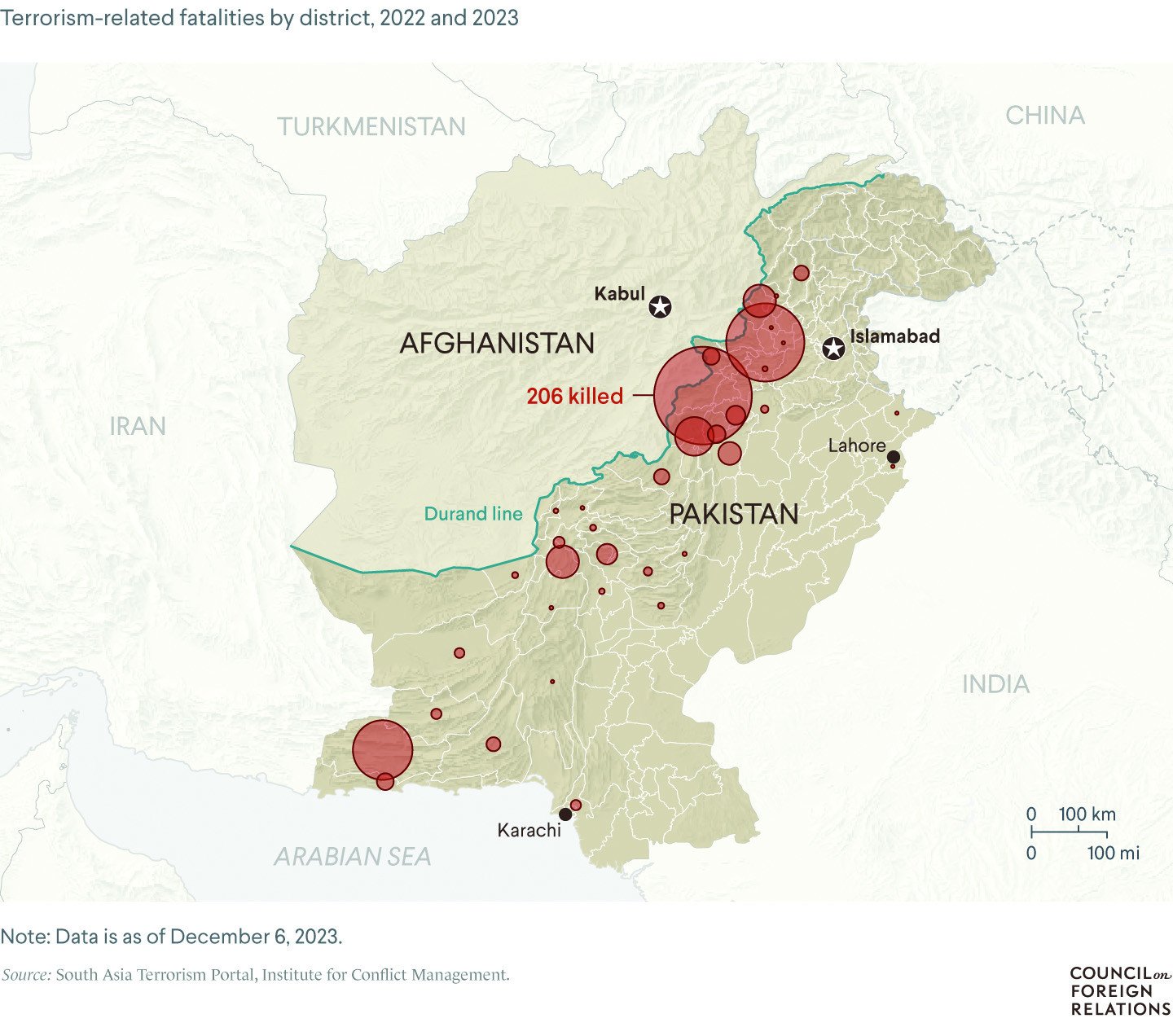
The conundrum
The air strikes show that Pakistan’s patience is wearing thin in the face of the Taliban’s continued reluctance to rein in the TTP. This may not be the first time Pakistan’s military has hit ‘trans-frontier’ targets in Afghanistan, but this is definitely the first time Islamabad has officially acknowledged such cross-border ‘anti-terrorists operations’. Some Afghanistan watchers believe there was no need for such an escalation as the risks involved outweighed the benefits. More so, because the main target managed to escape unhurt.
“Pakistan risked everything in the hope of having a friendly government in Afghanistan. Throwing its lot with the Taliban, it suffered a lot – politically, diplomatically, and economically,” says Rifatullah Orakzai, a senior journalist specialising in Taliban militancy. “Now, we should not squander away the strategic dividend of the Afghan policy we have pursued for over four decades,” he says. Orakzai believes the air strikes could be counterproductive as they might rile up anti-Pakistan sentiment in Afghanistan and help the Taliban heal internal divisions.
Orakzai’s fears aren’t unfounded. The Taliban’s archrival, Islamic State Khorasan (ISK), was quick to denounce the air strikes and warned Pakistan against “killing of innocent people and children” in bombing raids inside Afghanistan. The group vowed to take revenge in a massage released through its digital propaganda channel.
However, Maj Gen (retd) Inamul Haq doesn’t foresee long-term implications for bilateral relations. “It’s temporary escalation which will fizzle out soon. I don't think this could make a permanent dent in our bilateral relationship, because Afghanistan is heavily reliant on Pakistan,” says the retired general, who has extensively written on the subject.
Inam doesn’t agree Pakistan would easily give up the strategic dividend its Afghan policy has accrued. “Pakistan has supported the Taliban for over 20 years, how can we let go off the strategic dividend of this policy! The strategic dividend is temporarily suspended, but we would restore it in coming weeks and months,” he adds.
The relationship is strategically important enough for either side to withstand such escalations. Efforts to de-escalate followed shortly as a high-level delegation visited Kabul and successfully ironed out contentious trade issues.
Nonetheless, security experts say the cross-frontier strike option should have been avoided because they fear it could set a dangerous precedent for other regional states, especially India, which, in the past, did try a cross-border military misadventure in Pakistan, with terrible results for itself, though.
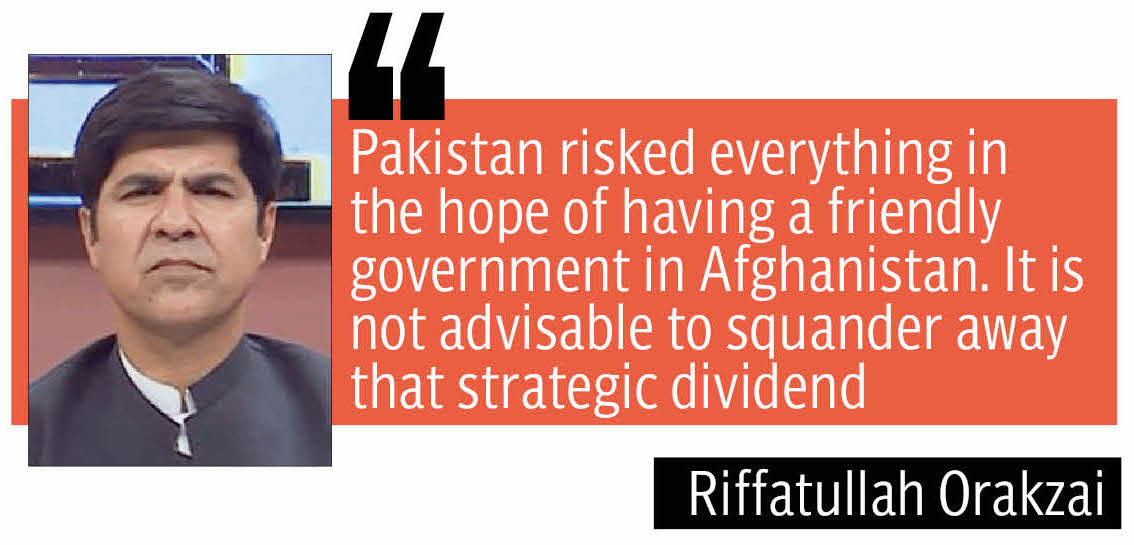
The perils
Officials have repeatedly reached out to the Taliban regime and shared dossiers containing evidence of the TTP using safe havens in Afghanistan for its terror campaign in Pakistan. The Taliban first brought the TTP to the negotiating table with Pakistan and then went into outright denial about the group’s presence on Afghan soil. “The Islamic Emirate of Afghanistan (IEA) does not allow anyone to harm anyone's security by using the territory of Afghanistan,” the Taliban spokesman said after Pakistan’s air strike. “Pakistan should not blame Afghanistan for the lack of control, incompetence and problems in its own territory.”
Pakistan carried out the air strikes after all other options, including political, diplomatic and economic, failed to soften the Taliban. Does this mean Pakistan has now dumped the policy of strategic restraint vis-à-vis Afghanistan? Or was it just a trailer for what Pakistan can do for its security interests?
“Pakistan waited for a long time for the right response from the IEA, which wasn’t forthcoming,” Inam says. “In my opinion, there is an understanding on our side to calibrate the pressure. When it yields, turn down the knob, and when it doesn't, turn up the knob. So, Pakistan will continue to calibrate its pressure in pursuance of desired results,” he adds.
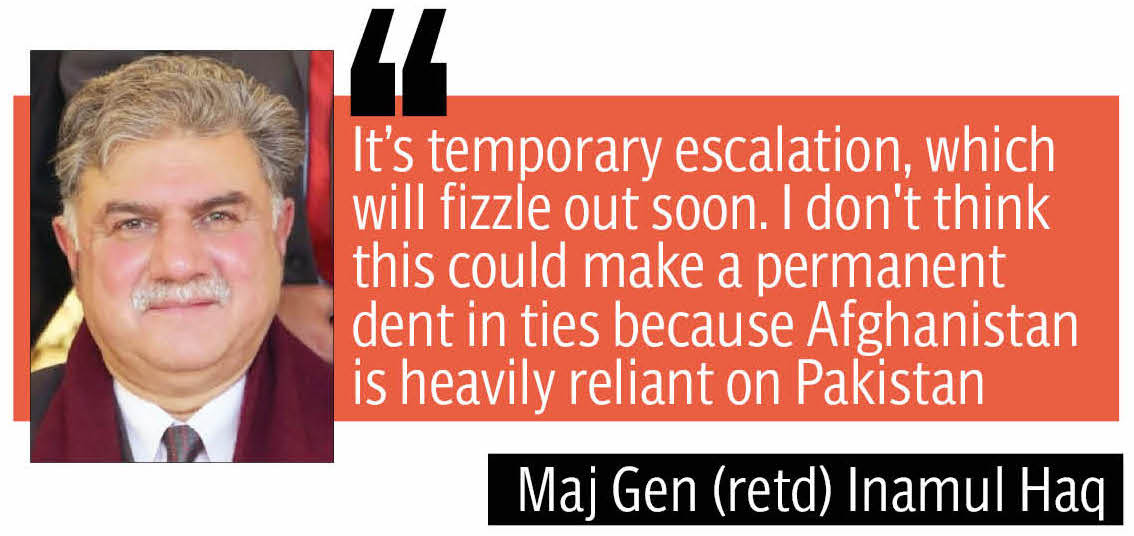
The million-dollar question
Why the Taliban regime is willingly risking its vital relationship with Pakistan for the TTP? Are they incapable or unwilling to challenge the TTP? Inam says they are both incapable and unwilling. Incapable, because the Taliban have prioritised a more formidable challenge, an existential threat to their regime: the ISK. And unwilling, because the camaraderie developed during the ‘jihad’ against the NATO forces is still very strong.
Orakzai, meanwhile, believes there are several factors at play. “The TTP and TTA (Tehreek-e-Taliban Afghanistan) are two sides of the same coin. You cannot decouple them. They fought alongside each other in Afghanistan. In the past, TTA fighters were sheltered in the erstwhile tribal areas by the TTP,” he says. “Therefore, it will be unrealistic to expect the Taliban would expel the TTP from Afghanistan.”
The TTP had paid a heavy price for sheltering TTA fighters during the Afghan insurgency. “Maulvi Faqir [then TTP deputy chief] once told me that they had lost nearly 8,000 people while harbouring the Afghan Taliban,” Orakzai recalls. “Today, the TTA is paying off that debt,” he adds.
Inam, however, says irrespective of socio-cultural, religious and ideological bonding, the realisation has finally sunk in that the TTP is a bone stuck in the throat of ‘IEA’. It is believed that the Taliban are reluctant to take action because they fear TTP fighters would switch side and join hands with ISK. Orakzai doesn’t foresee this. “Ideological bonding between the two is very strong. The TTP chief (Mufti Noorwali Mehsud) has sworn allegiance to Mullah Hibatullah Akhundzada (Taliban spiritual leader). I don’t foresee the TTP giving up TTA for ISK,” he says.
Report has it that the Taliban are divided on the issue of TTP. The Kandahari faction, led by Defence Minister Mullah Yaqoob, considers the TTP and other foreign militant groups a liability. The Kandahari faction, from which Taliban fighters draw ideological inspirations, wants to focus on building a Shariah-based state they had promised to the Afghans. They don’t owe much to the TTP because they had hidden away in Quetta, Peshawar and Karachi during the Afghan insurgency. Conversely, the Haqqani faction owes much to the TTP, which sheltered them in Pakistan’s border regions where the group also found recruits for their insurgency against the NATO forces. And now, the Haqqanis are repaying that favour.
Perhaps for this reason Pakistan has reached out to the Kandaharis earlier this month. The chargé d’affaires and head of mission in Kabul, Ubaid ur Rehman Nizamani, met with Kandahar Governor Mullah Muhammad Shirin Akhund, who is also deputy head of Afghan intelligence and heads the special coordination committee of Pak-Afghan affairs on March 12. A range of issues of bilateral interests were discussed, but sources say the main talking points were the TTP, Pakistan’s security concerns, and the spring offensive of militants groups.
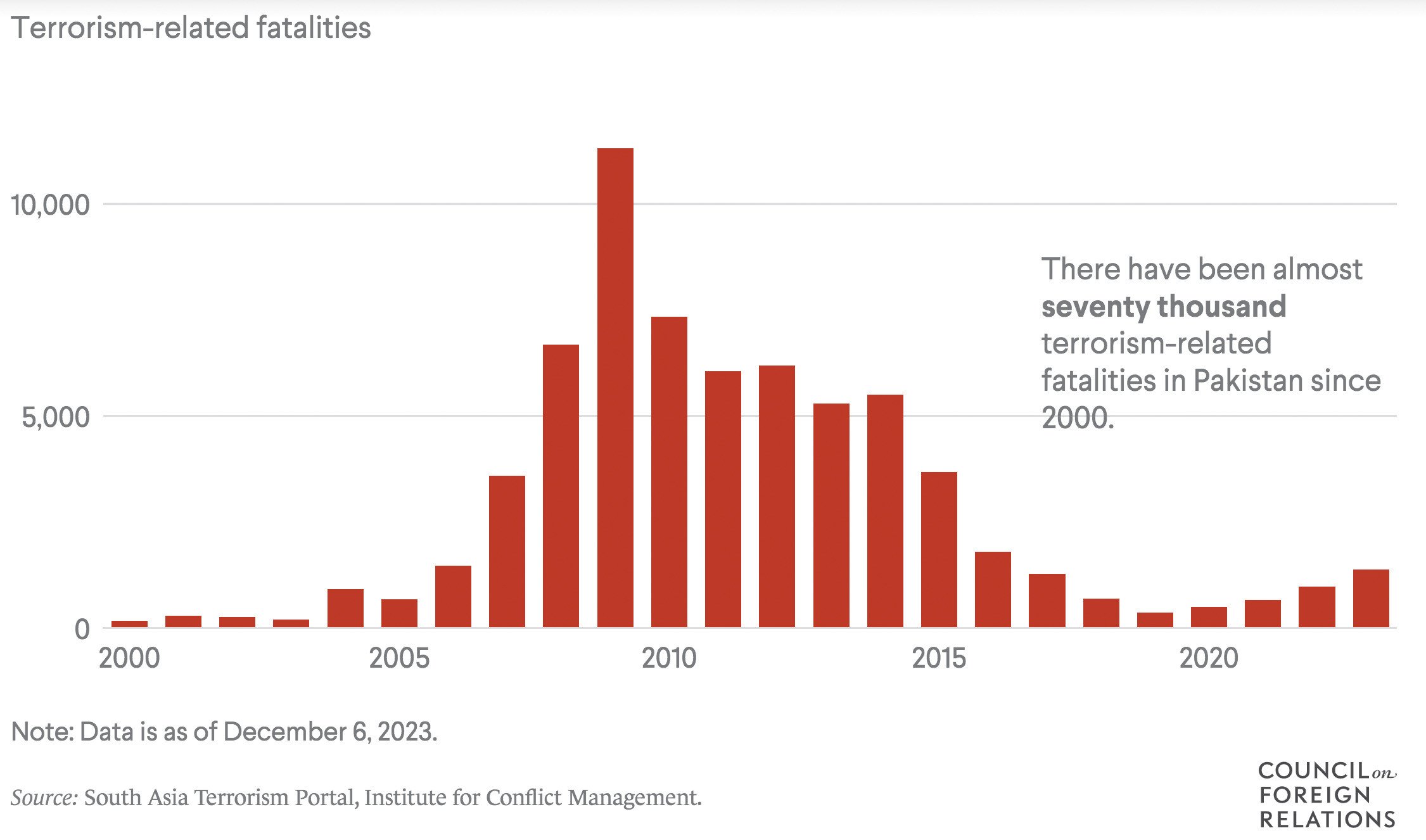
The way out
The Taliban’s denial of TTP’s presence on Afghan soil is an outright lie.
CENTCOM chief General Michael Kurilla confirmed after the Pakistani air strikes that the Taliban are sheltering extremist groups, including the TTP. “In a classified session I can give you great detail but I would tell you that we do see the Taliban as harbouring al Qaeda, they’re also harbouring Tehreek-e-Taliban Pakistan and other violent extremist organisations,” Gen Kurilla told the US Senate Arms Services Committee. “The only one that they are actively fighting is ISK.”
Earlier in February a UN report also endorsed Pakistan’s concerns, warning that al Qaeda has established eight new training camps in Afghanistan and is increasingly assisting anti-Pakistan militants to launch cross-border attacks.
“Besides supplying weapons and equipment, Taliban rank and file, al Qaeda core and AQIS fighters assisted the TTP forces in cross-border attacks… Some Taliban members also joined TTP, perceiving a religious obligation to provide support,” the UN Analytical Support and Sanctions Monitoring Team said in the report, adding that the Taliban have not responded to Pakistan's repeated requests to prevent cross-border attacks.
So, what do we do? Orakzai says the use of force won’t work. “It would only strengthen the Taliban regime and increase support for it among Afghans. The Taliban may retaliate by giving the TTP a free rein to carry out attacks inside Pakistan while claiming ‘plausible deniability’ at the official level,” he says. “I think Pakistan has to keep the Taliban engaged, politically, diplomatically, and through every other possible channel to get its legit security concerns addressed.”
The Taliban regime would only agree to a solution which is also acceptable to the TTP because the group has become deeply embedded in Afghan society where it also increasingly recruits for its terror campaign. This is substantiated by the fact that an overwhelming majority of recent TTP attacks in Pakistan involved Afghan nationals.
Conversely, Inam believes the TTP as a ‘force in being’ will become a liability as it has the potential to influence the power struggle in Afghanistan and threaten the ‘IEA’ effort to establish a control over the country. He sees the current spike in attacks as a desperate attempt by the Taliban to ratchet up pressure on Pakistan to bring it to the negotiating table with the TTP.
“We should stop raising stakes, stay quiet, and hold our nerves. In the meantime, we need to consistently use all elements of national power potential: strengthen border management, step up intelligence-based operations (IBOs), carry out ruthless counterterror operations within our border, and conduct unannounced cross-border operations whenever required,” says Inam. “The TTP would die its own death or become a serious challenge for the Taliban regime itself.”
(With additional input from Shahabullah Yousafzai in Peshawar)
